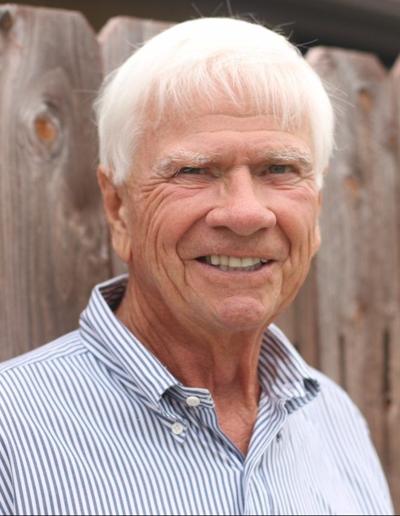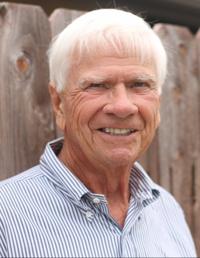
Tom Blake
By Tom Blake
In 24 years of writing about senior relationships, I’ve been asked many times, “How long should a widowed person wait to date?”
The most recent person to ask, Arlene of Laguna Woods, emailed, “What is a respectful time to wait to date after one’s spouse dies? A man I know is dating after six months of his wife’s passing. He’s in his mid-60s. I’ve asked many women what they think and (what) they say is, ‘It’s different for everyone.’ I say he could have waited a year out of respect for his deceased wife.”
The women who Arlene asked are correct: The length of time to wait to date again is different for everyone.
I don’t think respect is the issue here. I don’t know any details about the man’s marriage. His wife could have been ill for years while he stood by her. If that were the case, he had already shown great respect for her.
Or, what if their marriage was unhappy and miserable? But out of respect for her and the institution of marriage, he hung in there. Waiting to date wouldn’t accomplish anything else.
A more important question: has he properly grieved and healed? If he hasn’t, he should not be dating. Men tend to date quicker than women after the death of a spouse. What often happens, particularly with new widowers, is that they are lonely; they start to date before they are ready. A nice woman comes along and falls in love with him.
A little later, he realizes he still misses his wife terribly and dumps the new girlfriend. So, in protecting his heart, he breaks hers. That’s not good.
What’s the proper period to wait for grief recovery? Impossible to say. Many times, I’ve asked widows and widowers how long they waited to date.
One widow wrote: “You’ll know you’re ready when you no longer find yourself dwelling on the past comforting. Only you will know that.”
Another widow said: “After 21 years of marriage, it took me a good two years before I was emotionally ‘whole’ enough to consider another relationship. Up to that point, my incessant talk about my late husband would have made any man run in the opposite direction.”
What happens if someone is still grieving and he or she meets someone they think would be a great partner who becomes interested in them?
Here’s where honesty is paramount. Out of respect for the new person, he should tell her he’s still grieving but feels they could become a loving couple, and, if she would be patient with him, it could work out. Then, as they go forward, they can openly and honestly discuss how things are progressing. In that way, no one gets blindsided.
Somewhat along that line, I had a friend whose mother saw a man she knew. His wife had died just months before. My friend said, “Mom questioned me whether it was too soon after his wife had died for her to ask him out for coffee. I told her you can’t control when opportunity knocks, and if you don’t answer the knock, it may not return.
They had coffee. The next Sunday, the man took her to church. Six months later, they were married.”
A friend, Gale, told me years ago: “The man in my life had already done his grieving before his wife died, and no one has the right to dictate what that mourning period should be or for how long. That’s a right reserved exclusively for the partner left behind after a spouse dies.”
In other words, it’s no one’s business except the partner left behind on when they decide to date.
One thing is certain: As we enter our 60s, 70s, 80s and 90s, we don’t have a lot of time to waste in deciding if we’re ready to date or not.
So, perhaps Arlene will not judge too harshly the mid-60s widower who is dating six months after his wife passed away. Let’s hope he has adequately healed.
Tom Blake is a Dana Point resident and a former Dana Point businessman who has authored several books on middle-aged dating. See his websites at www.findingloveafter50.com; www.vicsta.com and www.travelafter55.com. To receive Tom’s weekly online newsletter, sign up at www.findingloveafter50.com. Email: tompblake@gmail.com.


